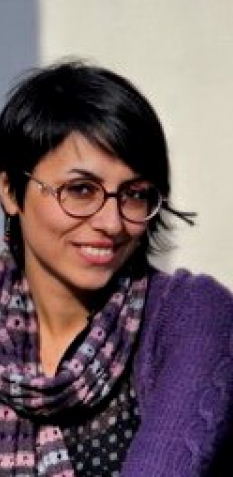
Peyvand Firouzeh
Background
Peyvand completed her BA (2004) and MA (2007) in architecture at the University of Art in Tehran. After having worked as a teaching assistant in the same institution and as an architect, she came to Cambridge in 2010 to do an MPhil in History of Art and Architecture. In her dissertation, she studied representations of architectural perception in travelogues and geographical treatises of 11th and 12th-century Iran.
Current Research
Peyvand’s current research focuses on patronage of Sufi shrines and complexes in the fifteenth and sixteenth centuries through a study of the Ni‘matull?h? Sufi order that was founded in central Iran in the fourteenth century, and established a branch in India during the fifteenth century under the patronage of the Bahmanids of the Deccan. The aim of her project is to examine key examples of the architecture made for the order – in Mahan (Iran), Taft (Iran), and Bidar (India) – by contextualizing them in their artistic, mystical, social, and political milieu(x), and in relation to each other, through a particular emphasis on the role of patronage.
Research Interests
Art and architecture of Islamicate societies in general, and Persianate societies in particular; patronage of art and architecture; patronage of Sufism; waqf studies; epigraphical studies.
